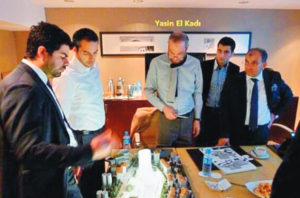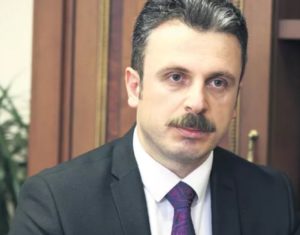Abdullah Bozkurt/Stockholm
The government of President Recep Tayyip Erdoğan, which has aided and abetted armed jihadist groups and laundered money for drug traffickers and Iranian regime elements, continues its charade of pretending to strive for compliance with the Financial Action Task Force (FATF), the global money laundering and terrorist financing watchdog.
A bill pushed through parliament advertised as Turkey’s intention to address long-running shortcomings in the terrorism financing and money laundering framework is full of new loopholes that were designed to give President Erdoğan a free hand in undermining FATF recommendations.
The most striking shortcoming in the legislation is the absence of any provision concerning a politically exposed person (PEP), going to the heart of the problem in Turkey’s legal and administrative regulatory framework, which systematically fails to crack down on terrorist financing and money laundering activities.
The FATF recommendation on PEPs was not followed Turkey:
Landmark cases in 2014 concerning al-Qaeda and the Islamic Revolutionary Guard Corps (IRGC) Quds Force terror networks in Turkey revealed that the key operatives in such terrorist outfits have strong protection under the shield of PEPs.
Erdoğan himself abused his authority in shielding individuals listed by the UN Security Council. For example, he took Saudi national Yasin al-Qadi, a one-time al-Qaeda financier, under his wing and defended him. Erdoğan even secretly transported al-Qadi in in his presidential plane when he was still on the UN and US terror lists and helped him enter Turkey illegally several times in a flagrant violation of UN Security Council resolutions and Turkish anti-terror laws. His son Bilal Erdoğan struck deals with al-Qadi, who moved millions of dollars to Turkey.
The Turkish president took kickbacks from Reza Zarrab, a dual Iranian-Turkish national who was laundering money for Iranian regime elements in defiance of US sanctions. Zarrab turned government witness in a federal case in New York and blew the whistle on Erdoğan, his son-in-law Berat Albayrak and their associates who helped him facilitate fictitious trade using Turkish state and private banks to launder IRGC funds.
Just a quick glance at the US Treasury designations is enough to show a long list of individuals and outfits that moved funds in Turkey on behalf of al-Qaeda and the Islamic State in Iraq and Syria (ISIS) in recent years. Turkey watchers believe such operations could not have been carried out without some sort of help from the political authorities in Turkey.

It’s not surprising that in a FATF mutual evaluation report issued in December 2019 after the visit of a FATF delegation to Turkey in March 2019 Turkey was rated as non-compliant with PEPs. “The key technical deficiency was that Turkey had not implemented AML/CFT measures concerning the establishment of customer relationships with PEPs,” the report noted. There is no specific reference in Turkish law or regulations concerning foreign or domestic PEPs, the FATF added.
Turkey promised to address this loophole and follow the FATF recommendations. However, the business-as-usual approach was seen when the 43-article bill, touted as compliance with the FATF rules, was submitted to parliament by Erdoğan’s ruling Justice and Development Party (AKP) on December 16, 2020. The AKP deliberately omitted this crucial FATF recommendation and merely expanded the government’s powers in cracking down on the legitimate opposition and critical groups under the pretext of combatting terrorism.
The track record of the Erdoğan government since 2015 shows a clear pattern of blatant abuse of laws on terrorism financing in its clamping down on legitimate opposition groups, from Kurds to members of the Gülen movement. The assets of thousands of people with alleged ties to the Gülen movement were confiscated or frozen by the government. According to a report by the Brussels-based human rights group Platform for Peace and Justice (PPJ), the total value of confiscated or frozen assets is $32 billion.
Full text of the Turkish bill that ignored key FATF recommendation on PEPs and was advertised as Turkey’s intent to comply with the FATF:
On the other hand, the government rarely or belatedly used the anti-terror laws including the financing of terrorism provisions on al-Qaeda, ISIS or other armed jihadist groups. The belief was that Erdoğan would invoke new executive privileges to further exert pressure on his opponents and critics rather than on real terrorist outfits.
The bill, officially titled Law No. 7262 on Preventing Financing of Proliferation of Weapons of Mass Destruction, was pushed through Parliament by the AKP, which indicates that the Erdoğan government was worried about possible negative repercussions if it did not act on the FATF recommendations.
In fact, when the bill was submitted to the speaker’s office on December 16, 2020, it was immediately referred to the Justice Committee, which scheduled a meeting on December 18 without providing adequate time for opposition parties to study and review the proposed legislation that brought many amendments to the existing laws.
The documents show the Erdoğan government rushed the bill through parliament, purportedly to address shortcomings in terrorist financing. The bill stopped short of complying with key FATF recommendations:
According to the opposition in parliament, the real motivation behind the rush was concern that Turkey would be placed on a grey list by the FATF, which would inevitably hamper Turkey’s efforts to attract foreign investment amid the pandemic and cause woes in the Turkish economy.
The opposition also presented the omission of PEPs from the bill as evidence that the Erdoğan government was not sincere in combatting the financing of terrorism. It noted that the FATF would realize this shortcoming as well and would not prevent the risks Turkey was facing as a result.
When it comes to civil society organizations and associations, the Interior Ministry was given new and sweeping powers in the new bill, prompting concerns that the Erdoğan government would exert more pressure on civil society, which was already suffocating under immense pressure from the government.
The Turkish opposition criticized the bill for the absence of any provision on PEPs:
There are also serious questions as to whether current Interior Minister Süleyman Soylu, a far-right nationalist figure with alleged ties to mobs and drug traffickers, would be willing to enforce the new provisions to hinder money laundering and drug trafficking activities that he is alleged to have participated in himself.
What is more, the Financial Crimes Investigation Board (MASAK), the body that coordinates with the FATF, became a political whip in the hands of the Erdoğan government after the mass purge of senior police chiefs and top administrators in the Interior Ministry. MASAK has been busy in producing reports that help the Erdoğan government to confiscate the assets of legitimate businesspeople, journalists and human rights activists under the pretext of battling terrorism.

In the meantime, real terrorist groups, drug traffickers and organized crime syndicates continue to escape the scrutiny of MASAK, which operates under Soylu’s Interior Ministry. Sedat Peker, a convicted mob boss and former ally of the Turkish president, recently claimed in a video posted on YouTube that current MASAK president Hayrettin Kurt was blackmailed by the government with an ongoing terrorist investigation into his wife on alleged links to the Gülen movement. He said MASAK issues reports according to whims of the government.
The conflicting reports issued by MASAK shows how it was manipulated by the government according to the political and personal agenda pursued by the Turkish president. For example, Sezgin Baran Korkmaz, a racketeer who was indicted on multiple criminal charges by US federal prosecutors and currently facing extradition proceedings on a US warrant in Austria, was cleared by MASAK when he was working with President Erdoğan to move funds and take over companies owned by Erdoğan critics.
When Korkmaz had a falling out with Erdoğan, who was apparently concerned that Korkmaz’s shady business dealings in the US would boomerang on him, Erdoğan ordered a new MASAK report that contradicted the previous one.












